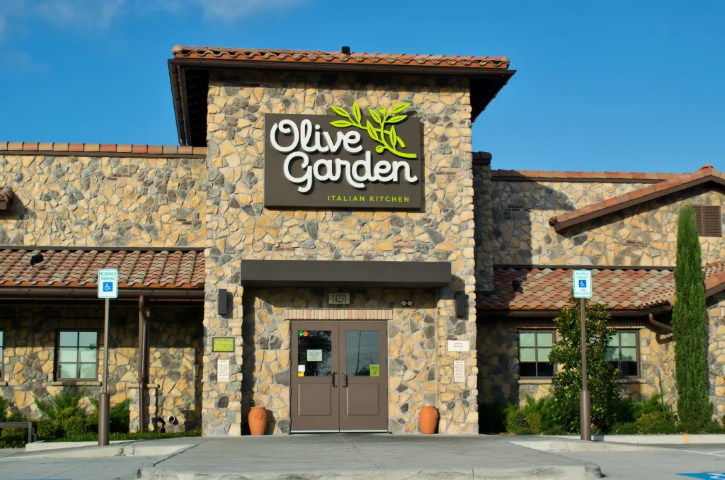
Olive Garden faces declining patronage from lower-income diners amidst rising prices, signaling affordability challenges in dining out. (Brett – stock.adobe.com)
The popular American eatery, Olive Garden, known for its family-friendly atmosphere and Italian cuisine, is facing a decline in patronage from middle- and lower-income individuals, as reported by its parent company, Darden, in its recent quarterly report.
According to Darden CEO Rick Cardenas, there has been a noticeable shift in consumer behaviour, with lower-income demographics showing a reluctance to dine at Olive Garden. This trend extends to households earning less than $75,000, who are avoiding the restaurant, as well as those with incomes around $50,000, who are steering clear of Darden's upscale dining establishments like Longhorn Steakhouse, Cheddar’s Scratch Kitchen, and Ruth’s Chris Steak House.
However, there has been a positive uptick in transactions from higher-income diners, those with incomes exceeding $150,000, during the third quarter ending on Feb. 25.
In response to economic challenges and inflation, Darden has refrained from significant price hikes, although it has discontinued certain promotions such as free pasta refills at Olive Garden. Despite this, Olive Garden still offers its signature "never-ending first course" deal comprising soup, salad, and breadsticks, albeit with reduced discounting compared to pre-pandemic times.
Cardenas emphasized the importance of maintaining low staff turnover to reduce training costs amidst the current economic climate, where consumer spending is constrained.
“We believe that operators can deliver on their brand promise with value and can continue to appeal consumers despite economic challenges,” Cardenas stated, affirming Darden's commitment to focusing on delivering value to customers.
Darden, a publicly traded company listed on the New York Stock Exchange, reported its shares trading flat at approximately $163 per share as of Wednesday afternoon. The company owns and operates a total of 2,022 restaurants, including 917 Olive Gardens, 572 Longhorn Steakhouses, 181 Cheddar’s Scratch Kitchens, and 64 Capital Grilles.
In a similar vein, McDonald’s CEO Chris Kempczinski recently acknowledged that the fast-food giant is also facing challenges in accessibility for low-income customers. Reports indicate significantly higher menu prices in affluent areas, such as parts of Connecticut, where a Big Mac meal costs $18.
With the implementation of a new $20-an-hour minimum wage law in California, McDonald’s and other chains like Chipotle have warned of potential further price hikes, exacerbating affordability concerns for consumers.















